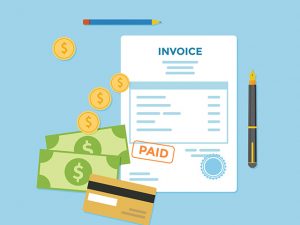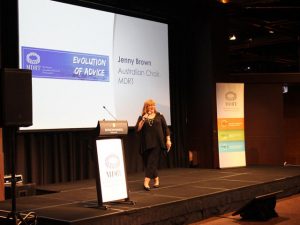Elixir Consulting’s Sue Viskovic highlights eight distinct elements of life insurance-related advice for which she says clients would (and do) pay a fee to their advisers. Sue argues that while commissions can certainly remain a part of the advice business equation, advisers should nonetheless be thinking in terms of the fact that it’s the quality of their advice which holds the value, and for which their clients are ultimately prepared to pay…
In a changing world where all life insurance advisers are now legally and ethically expected to act in the best interests of their clients, your aim should be to deliver a service that people are willing to pay for – even if you choose to continue to receive commissions for what you do.
Do you represent the vendor or the client?
In every instance I can think of outside of the financial services sector in which people are paid a commission, they are paid by the vendor of a product on a commission basis when they successfully move the product on behalf of the vendor. The purpose of the commission structure is to motivate them to either sell higher volumes of the product or to secure the highest price.
So, it’s not that hard to make the link: if you expect a salesperson on commission to be acting on behalf of the vendor, all they want to do is sell you their product.
Is that really what you do? Are you just an insurance salesperson? Of course, you’re not. Yes, you use insurance as the means to an end to help your clients cover the risks they face, but just about every adviser I know does so much more than simply ‘sell insurance’. Before they get anywhere near an insurance product, they provide a lot of value to clients in even getting them to consider their own mortality and put some type of plan in place to help them and their families in the event a tragedy occurs.
The days of tied agents are long gone. Today, advisers act in the interests of their client and source the best product, keeping the insurers accountable and making sure their clients get the best cover they can afford. Advisers have changed, but their remuneration model hasn’t necessarily kept up.
The challenge here is to separate out your advice from the product itself.
The challenge
One objection I hear often is: “Charging a fee is not in my clients’ best interests because they will have to pay my fee in addition to the insurance premium, and they won’t want to do that – plus it will end up being more expensive than it is now.”
The challenge here is to separate out your advice from the product itself.
We can take a lesson from the advisers who are successfully charging a fee for their insurance advice, both those who are subsidizing their commissions with an advice fee, and those who have replaced commissions entirely. The greatest distinction is that these advisers separate out the value of their service from the value and cost of the insurance premium itself. In one respect, they are actually ‘selling’ two different things: their advice and service, and the insurance.
Their clients understand their adviser works for them (not the insurer). The client doesn’t compare this to insurance by itself because they have chosen to have their adviser in their corner to ensure it is all set up properly, and when it is positioned properly to them, they understand the requirement to pay for this professional service.
I’ve heard on many occasions that insurance needs to be sold – not bought. I’ve heard that people don’t wake up one morning and think ‘I want to buy life insurance today’. That is probably right, but I guarantee you that people do lie awake at night thinking ‘What will happen to my kids if something happened to me?’, especially if they have someone in their close network who has suffered a catastrophe that has brought home the reality that they aren’t, after all, bulletproof, and that sometimes bad things do happen to good people.
So, let’s summarise the sort of professional service and advice that clients will pay you for:
1. Helping them confront their own mortality
Many people don’t like taking the emotional journey of confronting their own mortality and imagining a world in which their children don’t get to grow up with them in their life. Left to their own devices, many couples would prefer to even start an argument over who does the dishes or simply watch mindless TV rather than have that conversation. A great adviser will support their clients through that emotional discussion of confronting the what-if’s, gently forcing them to voice their fears in a safe environment and empowering them to quantify the risks and put a plan in place to manage them as best as possible.
2. Determining all the options relevant to their circumstances
A great adviser will quantify the risks and reveal the alternatives that clients have in different scenarios (either one dies, both die, either/or are incapacitated). If your proposition was to analyse the risks a family faces and put solutions in place to mitigate those risks in the best way possible, insurance becomes a tool in your kitbag. Your advice includes the alternatives the family has, even if they don’t get new insurance cover – most people nowadays will already have some level of cover, however insufficient that may be, and they may have some assets they can liquidate. You can also help by providing them information on what government assistance they may apply for in the event of a catastrophe.
3. Analysing the options and making a decision
You help them analyse whatever cover they currently have, educate them about what types of cover there are and what is the optimum mix for them and then crunch the numbers to determine not only the right levels of cover but the right types of cover, with the right features and benefits to suit their unique situation and budget.
4. Ensuring the best structure for ownership, beneficiaries, tax optimization etc.
You’ll ensure all the technical details of their cover are handled properly. Without you, most clients would be lost when determining the best way to structure the ownership of their policies so that they can minimise tax payable, both on the premiums they pay and also on any payout that they may receive. You can assist them to understand the pros and cons of holding insurance via superannuation, considering such things as the harsh conditions of release for TPD, and the likely time frames for claims payouts based on ownership structure. You can also help them make an informed decision about whether to select level or stepped premiums, agreed value or indemnity, any-or own-occupation, bundled or standalone policies, and so on.
5. Selecting the best product to match the client’s needs
You help them determine the right insurer for their needs and, if you’re doing your job well, work with them to determine the right balance between the optimum mix of cover and what they can actually afford. You’ll ensure that their policies are underwritten at time of application rather than claim, whilst helping them understand the power and importance of this fact.
Here’s a tipIf you find that you have a high percentage of clients who only implement a portion of what you recommend, you need to rethink your approach. This is not about ‘pitch high and hope for the best’ – when you truly act as your clients’ adviser, you certainly highlight the optimum cover but also work with them to find the levels that will be adequate and not send them broke. (Understanding their cashflows and living expenses plays a critical role here) |
6. Facilitating the application and underwriting processes
Once you’ve helped them decide on what, how, and how much to implement, you help them to understand and work through the underwriting and application process, keeping it moving and often negotiating with the underwriters to get the best offer possible. If there are any exclusions or loadings, you’ll help the client understand these and make an informed decision about proceeding. This process sometimes results in early detection of health concerns which, whilst potentially delaying insurance implementation, can improve the quality and length of clients’ lives.
7. Claims advocacy and support
Perhaps one of the most valuable things about having an adviser is the ability to call on you when something goes wrong. Your clients take satisfaction that you will know if they should make a claim, and you will handle the paperwork and act as their advocate to liaise with the insurer on their behalf. Whilst you can’t guarantee a successful claim, you certainly can guarantee less stress and more time to focus on their recovery.
8. Managing the claim benefit proceeds to optimize value
When that claim is paid, a good adviser will help ensure the proceeds are received and utilised in the most tax-effective way that will achieve the best outcome for the remaining family (think lump sum, reversionary pension, early release, and all the other options that confuse even the healthiest of people).
You inherently know that the value of your advice is really important
Your value
None of these important, achievable goals can be done through direct insurance, and they most certainly are not done when a client simply has default cover in their super fund.
Great advisers teach their clients (and prospects) that there is no point in seeking the cheapest insurance policy without an adviser, as insurance gets really expensive if it doesn’t pay out at claim time.
You inherently know that the value of your advice is really important and there are statistics to back you up.
Did you know that in 2015*, of the $7.2 billion in claims payouts to clients in need, $5.3 billion of that went to clients who had their policies put in place by an adviser? Think about how powerful that is, and what great value that represents!

This article is based on an extract from the third chapter of Worth Paying For (2016), written by Sue Viskovic. Sue is the founder of national consulting business Elixir Consulting; a popular speaker; a business coach; and author of a number of books and programs designed for advisers.
An award-winning advocate for financial and risk advice and small business, Sue’s most recent achievements include her latest book Worth Paying For, which has become a lifeline for many advisers impacted by the Life Insurance Framework, and the fourth edition of the Adviser Pricing Models Research Report
Contact or follow the author: Website | Email | Twitter | Facebook | YouTube










